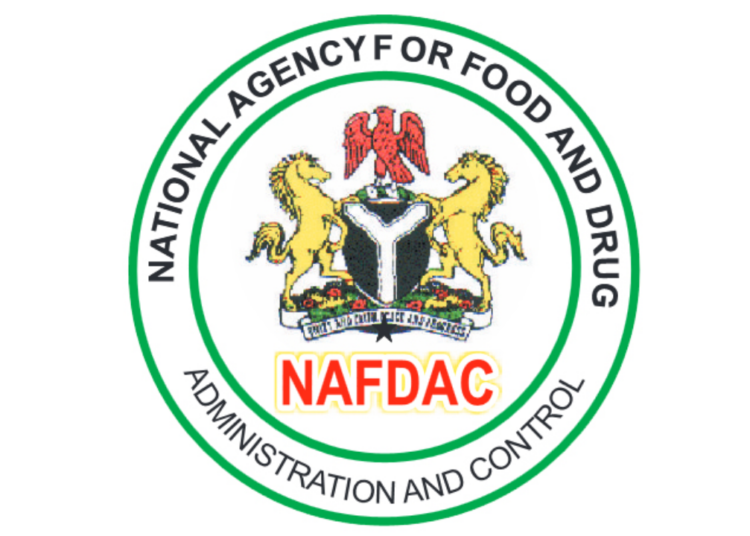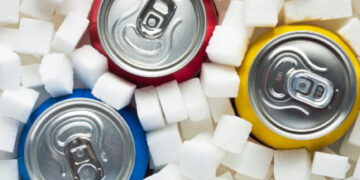The recent raid by the National Agency for Food and Drug Administration and Control (NAFDAC) on shops- turned- factories for the production of adulterated alcoholic beverages and food products in Aba, Abia State, highlights the persistent menace of counterfeits and unregistered products in Nigeria.
The scale of criminality unearthed is mind-bugling – over 240 shops converted into filthy, dangerous underground factories using unsafe practices such as dirty water and chemicals to churn out counterfeit beverages.
The products ranged from wines and spirits such as Hennessy, Smirnoff and Gordons to soft drinks like Coca Cola and Eva water.
NAFDAC estimates the haul was worth N750 million. Ten people were arrested but this is likely a tip of the iceberg for such illegal activities going on in parts of Nigeria.
The impact is devastating. Beyond revenues lost, NAFDAC estimates over three million people worldwide die yearly from toxic alcohol poisoning. The dangerous chemicals used can blind or kill.
This comes against the backdrop of rising substance abuse and addiction in Nigeria, with fake and often dangerous alcoholic drinks flooding markets.
NAFDAC director-general, Prof. Moji Adeyeye, had warned that drinking adulterated alcohol can cause nausea and vomiting, abdominal pain, drowsiness and dizziness, blue tinged or pale skin, irregular or slow breathing, low body temperature, unconsciousness or passing out, kidney and liver failure or even death.
“Methanol, a substance which can be used in fake vodka, may cause permanent blindness,” she added.
The proliferation of unregistered products also poses grave dangers. Reports indicate it can take up to three years to secure NAFDAC approval, frustrating law-abiding enterprises and allowing unvetted products to flood shelves. Their safety is questionable as they bypass regulatory scrutiny.
In the considered opinion of this newspaper, decisive action against the counterfeit industry is imperative. While the Aba raid helps, more needs to be done to eliminate the problem at its roots.
No doubt, anti-counterfeiting laws need more teeth with stronger penalties.
We strongly suggest that NAFDAC and law enforcement agencies should conduct similar raids on other major markets in Lagos, Onitsha and Kano, identified as hubs for fake products. Borders also need tighter scrutiny to restrict the inflow of fakes.
Public awareness campaigns will also help educate people on how to identify genuine products. The government can tap celebrities as brand ambassadors to sensitise Nigerians, especially the youths, on the dangers of patronising counterfeit alcohol and unregistered pharmaceuticals. Messages should leverage social media for mass reach.
It is gratifying to note that NAFDAC has unveiled a list of adulterated wines and drinks in circulation, even as it has enlightened Nigerians on steps to verify the original products.
These include the manufacturing of adulterated products, especially wine from a wide variety of brands ranging from Seaman Schnapps, Henessy, Four Cousins, Carlo Rossi, Jenney, Chelsea London Dry Gin, Schnapp Dry Gin, McDowells, Black Labels, Gordons, Martell, Campari, Smirnoff Ice, Eva Non-Alcoholic Drink, Evra Non-Alcoholic Drink, Cartel and others.
There is also date revalidation for expired products like Peak Milk, powdered milk, ketchups, yoghurt, Coca Cola products, packaging of fake and substandard products, which are later sold to unsuspecting members of the public for consumption.
However, alongside the sticks must come some carrots from NAFDAC. The agency has been faulted for having an opaque, tedious registration process for new products with fees seen as exorbitant. This frustrates genuine businesses and provides an environment for counterfeits to thrive.
As the noose tightens on counterfeiters, NAFDAC must reform to make it easier and cheaper for legitimate businesses to secure registrations. This includes simplifying paperwork, reducing red tape, creating help centres and portals for applicants, slashing fees and shortening approval timelines.
A balance is vital – NAFDAC should aim to regulate not strangulate enterprises with bureaucratic bottlenecks. Streamlining its processes will encourage formalisation of more businesses, bringing them under the regulatory ambit to ensure quality standards.
NAFDAC also needs more funding and manpower to execute its mandate effectively. Government funding has been inadequate for the scope of operations required.
Creative options like levies on certain industries to finance anti-counterfeit crackdowns should be explored. Staff strength also needs boosting to intensify surveillance nationwide.
Partnerships with bodies like Standards Organisation of Nigeria (SON) and Consumer Protection Council (CPC), plus agencies in neighbouring countries, will also help coordinate efforts across the value chain. Information sharing and joint operations will bolster efficiency.
If counterfeiting persists, danger for public health and safety cannot be overstated. Fake malaria drugs, painkillers, antibiotics and more flood the markets unchecked. Alcohol poisoning amid addiction crisis is a cocktail that ruins lives. Even basic products like milk and water are not spared.
In view of the foregoing, we call on NAFDAC and all stakeholders to sustain firm action against criminal syndicates producing dangerous fakes.
But this should go along with reforms to ensure regulatory mechanisms don’t fuel the problem with hurdles that drive law-abiding enterprises underground or out of business. With lives at stake, we need both the carrot and the stick.





